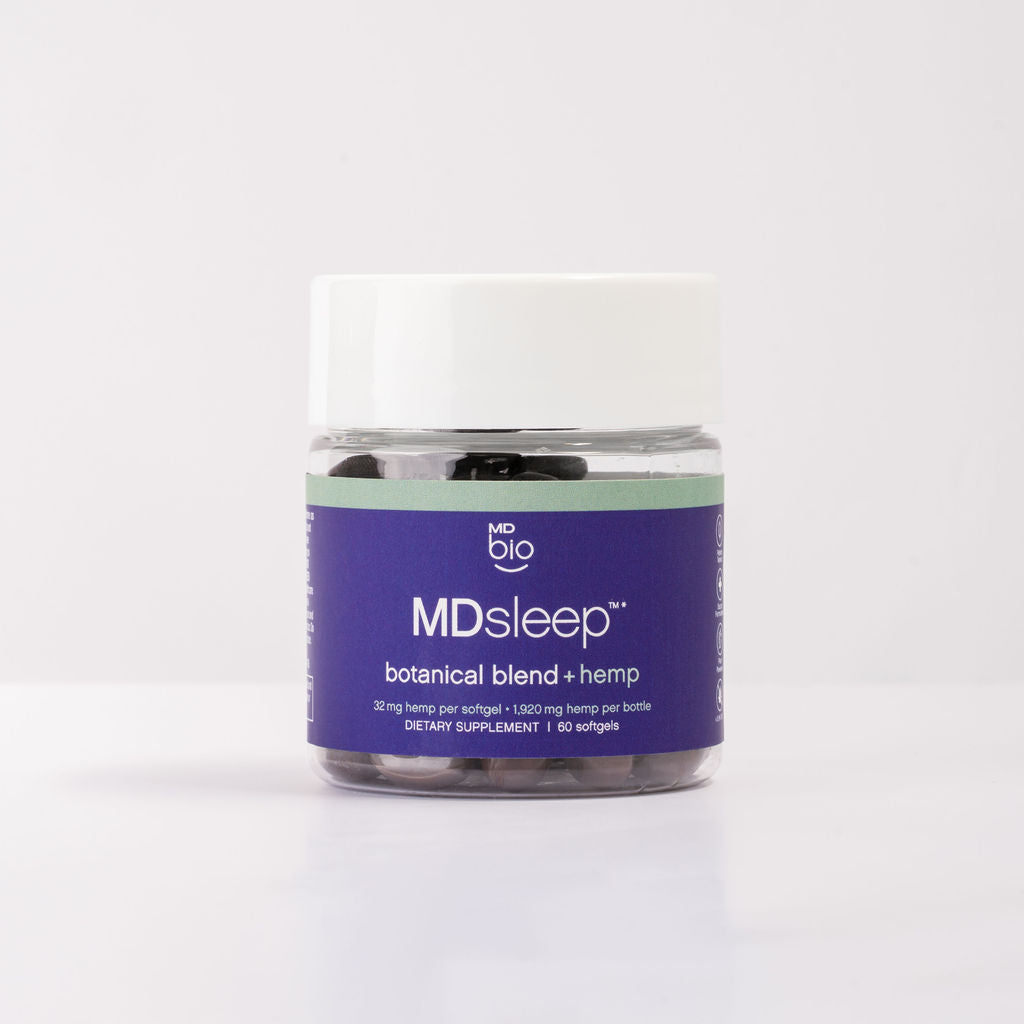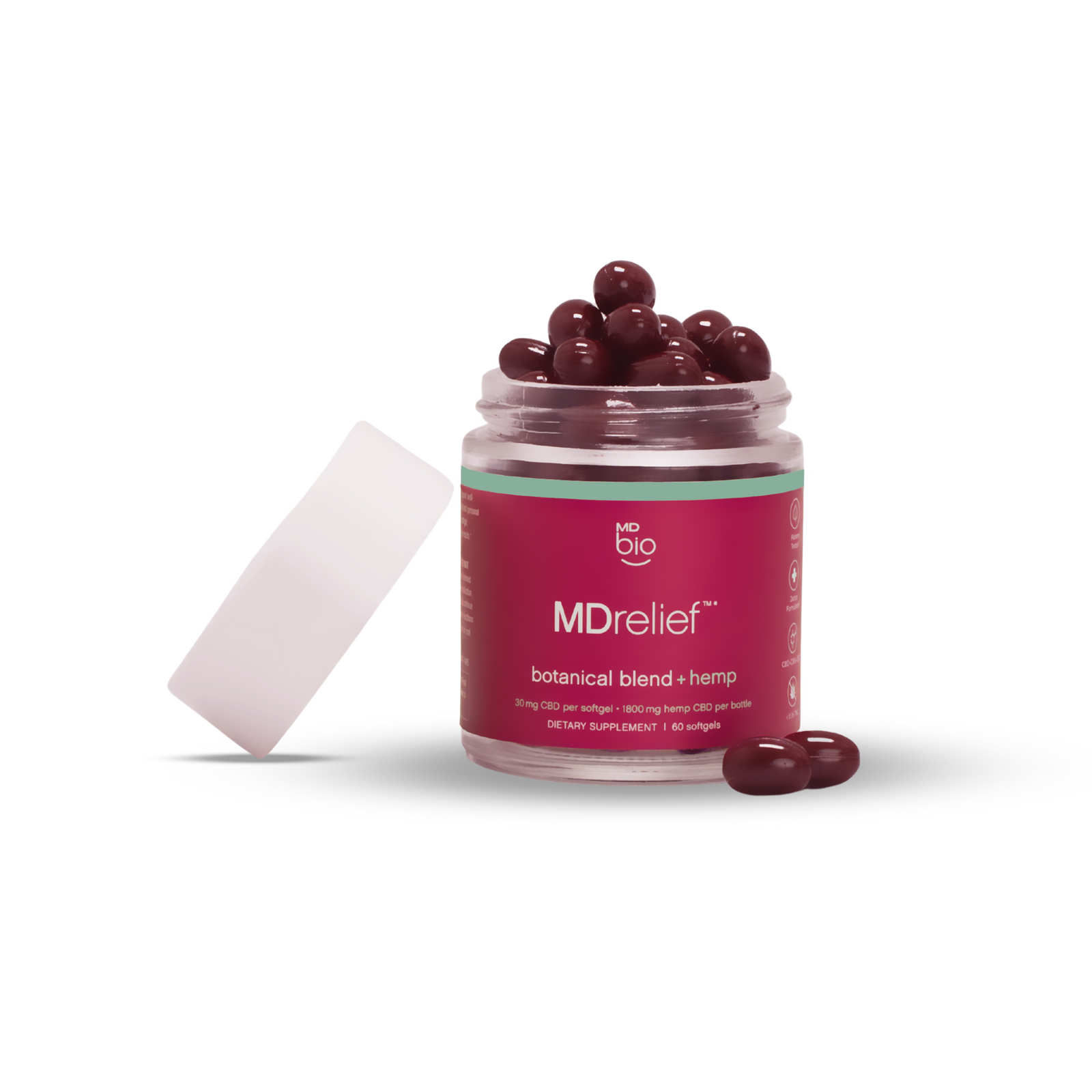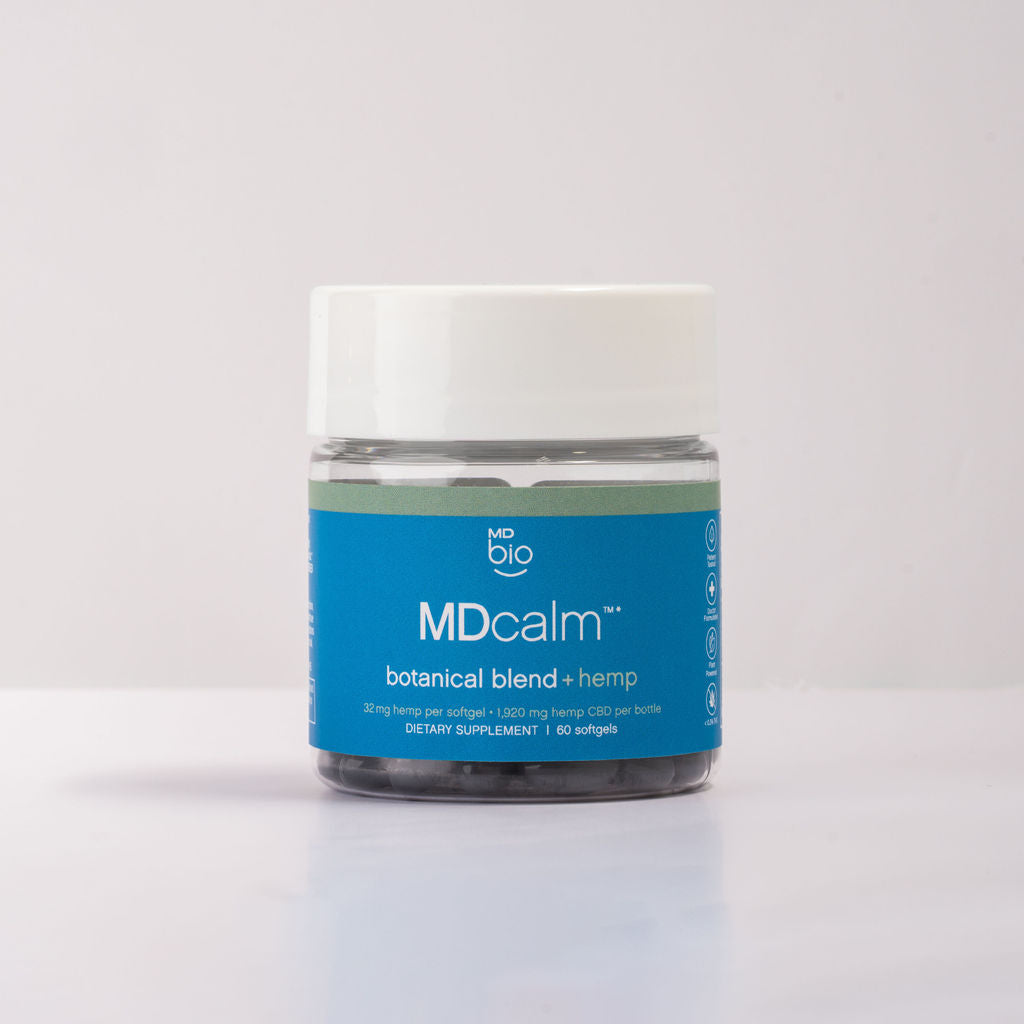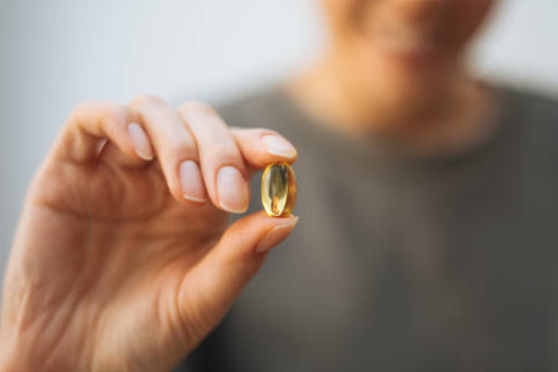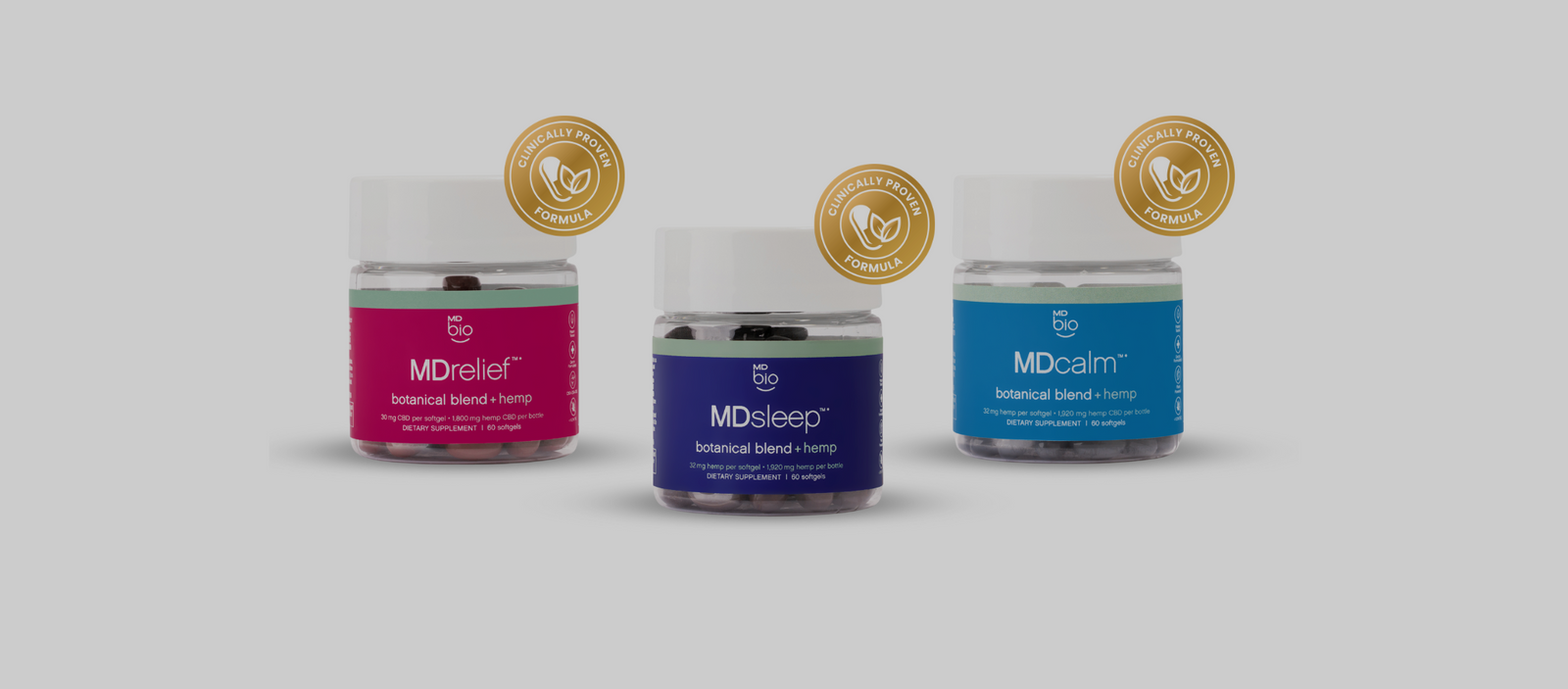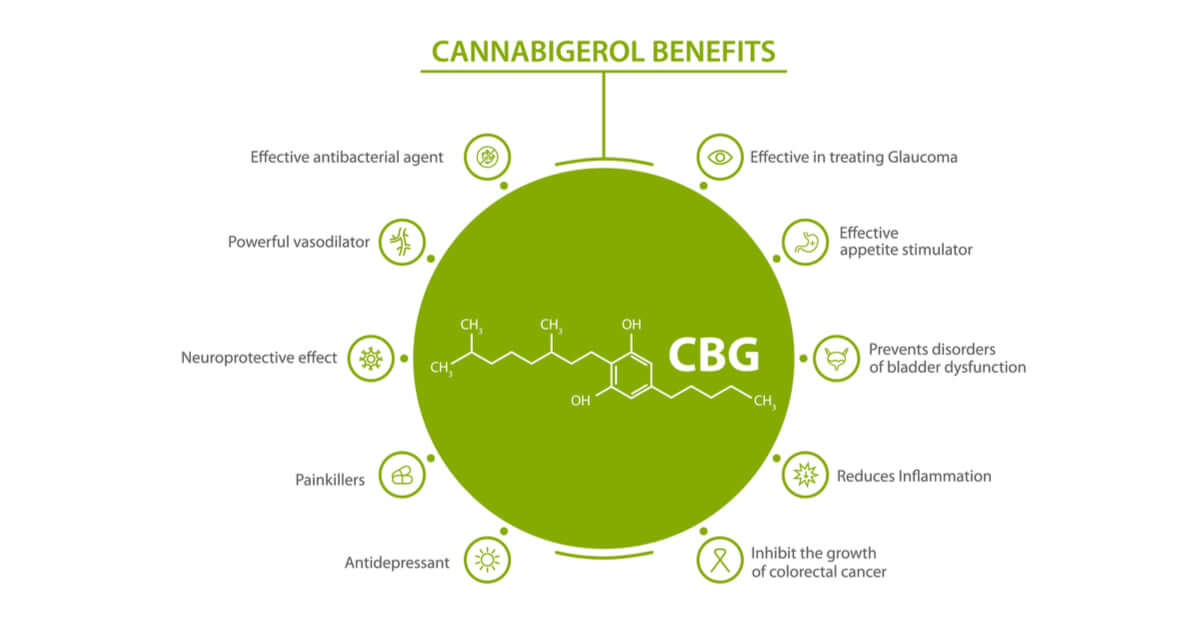
Natural medicines derived from the cannabis plant are increasingly popular in the U.S. and around the world. CBD (cannabidiol) is perhaps the best-known of these. However, CBG (cannabigerol) is potentially one of the most effective natural medicines for pain that can be found in hemp extracts.
Our guide provides all you need to know about CBG benefits, how you can use CBG for targeting pain, and how its use is being studied in the treatment of many common illnesses. We'll also compare CBG benefits side-by-side with CBD and THC to help you understand what CBG is and why it's among the most exciting natural medicines around today.
What is CBG?
Cannabigerol Production
What is CBG, and why do we hear less about it than CBD or THC? It's lesser-known partly because mature cannabis plants contain far less CBG than these other compounds. Higher concentrations can be found in younger hemp plants, but the ratio in a mature plant is typically around:
- CBG - <1%
- CBD - ~20-25%
- THC - ~25-30%
This varies dramatically depending on the strain, as growers have invested considerable time into producing plants that are especially rich in CBD or THC. However, it's only recently that techniques have begun to emerge that increase the amount of CBG available in a plant. This typically involves changing the lighting conditions and might also involve harvesting higher leaves for CBG compared with lower growth - again, young plants seem to produce the highest CBG yield, so harvest time is important.
Cannabigerol Use
If you're wondering what CBG is and why haven't you heard of it, it's because of this relative scarcity. It's traditionally made products containing CBG for targeting pain more expensive than their counterparts. However, improved growing techniques and burgeoning awareness of potential CBG benefits have shifted the focus onto how this cannabinoid can be extracted in higher volumes and used for natural medicines.
Cannabigerol products are available in an increasing number of online and brick-and-mortar stores. It's often used in conjunction with other well-known herbal medicines such as valerian extract, which has been used for thousands of years to promote a sense of wellness and relaxation. Another popular combination is cannabigerol with hops extract, which is considered to have a beneficial effect on sleep.
Natural amino acids such as L-Theanine and GABA are also used to augment the supposed relaxing effects of cannabigerol, reducing the activity of brain impulses and helping users suffering from pain to rest more easily.
Cannabigerol Effects
The extract is considered to potentially have more potent pain-relief properties than CBD, hence the interest in increasing its availability. Over 20% of U.S. adults reported experiencing chronic pain in 2019. Furthermore, the opioids and other prescription medications used to treat pain in the U.S. have suffered huge reputational damage over the past decade, leading many people to seek alternative medicines such as CBG for pain.
Cannabigerol has no psychotropic effects, which makes it distinct from THC. It's far closer to CBD than THC in terms of its effects, with primary purported CBG benefits focused around pain relief, alleviating digestive discomfort, and potentially helping treat some illnesses. It doesn't “get you high” in any sense.
This should reassure those wondering what is CBG and why it can be used safely as a complement to conventional pain medications. THC is considered the component of marijuana that is primarily responsible for cannabis use disorder (CUD), and while even THC has negligible addictive properties compared to opioids and other pharmaceuticals, users seeking CBG for pain understandably want to steer clear of any natural medicine with addictive potential.
CBG Benefits
So what are the main CBG benefits? While many people use it as a treatment for pain, it's been suggested that cannabigerol might have wide-ranging benefits when used as part of a naturalistic lifestyle. Here are some of the most often-reported CBG benefits.
Pain Relief
Perhaps the most promising use of cannabigerol is in targeting pain. While the body of scientific literature around cannabigerol isn't yet large enough to make authoritative assertions, there have been some positive results from peer-reviewed studies and journals.
A 2008 article reviewed the use of certain cannabinoids in treating difficult-to-manage pain. It found that several clinical trials had turned up encouraging results in using CBG for pain alongside other cannabinoids like CBD. This included physical pain conditions like multiple sclerosis (MS), but also neuropathic pain conditions caused by stress, anxiety, and other factors.
A 2021 study considered the anti-inflammatory properties of cannabigerol. As this was published much more recently, it was able to note the increased popularity of cannabinoids in treating pain conditions. The study's authors concluded that there was significant potential for using CBG for pain but also that it had been used effectively to treat obesity in mice.
This was noted as especially interesting, as anti-obesity measures are frequently prohibitive or condemnatory and fail to take into account obesity-related pain and stress. Using cannabigerol as part of a wellness and pain relief-focused treatment for obesity could potentially be a game-changer that comes without the addictive properties of conventional pain medications.
Another 2021 study noted that comparatively, little research has been undertaken into what is CBG and how it works. However, the study found that cannabigerol might contain benefits conventionally distinguished between CBD and THC products - for example, the mood-improving and analgesic properties perceived in THC combined with the anti-inflammatory properties some attribute to CBD. This would make it an exciting potential treatment for a wider range of common problems than CBD but without the unwanted psychotropic effects associated with THC.
More research is needed into using CBG for pain before any assertions can be made. However, a growing body of research suggests that it might have properties that make cannabigerol a revolutionary natural medicine for pain relief.
Potentially Combating Illnesses
There have been suggestions that cannabigerol could play a role in treating several common illnesses, including inflammatory bowel disease (IBD) and some forms of cancer. We'll cover the potential CBG benefits for several illnesses below, but it's worth noting that studies in these areas are still in their very early days and shouldn't yet be considered as an alternative to approved medical treatment for serious illnesses.
Nonetheless, combined with its purported analgesic properties, the idea that cannabigerol could be used in the treatment of serious and life-changing illnesses is an encouraging prospect. Patients suffering from complex medical conditions are often faced with crippling medical expenses for prescription pain-relief pharmaceuticals that can cause long-term addiction and have other harmful side effects.
Natural medicine that was able to reduce or mitigate symptoms while offering pain relief would be a welcome addition to the range of treatments for certain illnesses. More studies will hopefully be conducted into CBG benefits for illnesses such as IBD, cancer, and glaucoma.
Improving Sleep
Poor sleep affects a huge proportion of the U.S. population. It can be caused by a variety of lifestyle and health issues, including:
- Pain. Chronic and temporary pain can both significantly impact your ability to sleep. Frequent waking makes sleep less effective at healing the body, which means that chronic pain patients are often stuck in a vicious cycle of sleeplessness and inadequate healing.
- Stress. The stress of modern life can make it difficult for people to switch off at night. Reducing nightly sleep even by an hour or 2 due to stress can have long-term negative effects, as sleep deprivation causes more stress and can even lead to conditions like psychosis.
- Anxiety. Generalized anxiety disorder (GAD) and other anxiety-related conditions can cause sleeplessness due to racing thoughts and dread.
- Overwork. Working long hours or working from home where there's no physical space between “home” and “work” means that the lines between “waking time” and “sleeping time” become blurred.
The main CBG benefits for sleep have been reported when cannabinoids are used in conjunction with GABA, the human brain's primary inhibitory neurotransmitter. For this reason, high-quality cannabigerol products tend to use this amino acid as an agent to potentially improve sleep in users, which can in turn lead to long-term pain reduction.
Sleep is essential for healing the body and mind. Cannabinoids that help promote sleep and may have bespoke analgesic properties are especially exciting for this reason, as it promotes a more holistic, natural healing process.
Antibacterial Properties
Among the most interesting CBG benefits are its antibacterial properties. One study found that CBG works against a bacteria calledStreptococcus mutans, which has a prominent role in forming tooth cavities. Cavities can be extremely painful if left unchecked, and many products sold for oral care contain harsh chemicals that people would rather avoid. Some antibacterial mouth rinses containing chemicals like chlorhexidine can even have harmful effects on the mouth.
Edible CBG products may present an antibacterial alternative to harsh chemical mouth rinses or other oral hygiene products. While there's been limited research in this area, the antibacterial properties of cannabigerol are another fascinating area of study.
Combating Anxiety
Cannabinoids are believed by some researchers to have an important role to play in treating anxiety-related disorders. Like other cannabinoids, cannabigerol interacts with the CB1 and CB2 receptors in the brain. THC has been considered an effective agent for regulating moods by interacting with CB1 receptors, but many people want to avoid the psychotropic effects of THC.
So what is CBG used for here? It interacts with the same receptors and although research is very limited for now, regulating activity in these receptors could make it a helpful treatment for reducing anxiety.
Treating Depression
Depression has long been an area of interest for anyone studying cannabinoids. Depression also has a complex relationship with pain - people experiencing chronic pain are very likely to suffer from depression. Vice versa, depression can bring about physical pain or lead to long-term chronic pain conditions. Any potential CBG benefits for treating depression would therefore be extremely interesting.
There's been very little research done into the relationship between CBG and depression, but a 2021 survey found that among cannabigerol users, 33.1% used it to help treat depression. While user-reported data can't form a basis for hard scientific evidence, the survey found that the majority of participants considered it effective for their use case.
Using CBG for Pain
What is CBG most effective for in terms of pain management? Let's consider some of the most common pain types that might be treated effectively by purported CBG benefits.
Chronic Pain
Chronic pain is a debilitating condition that affects a large proportion of the U.S. population. Managing chronic pain has typically been treated by prescribing powerful opioids that can have harmful side effects such as:
- Nausea. Users often report feeling sick as a result of opioid-based pain medications. This counteracts the analgesic properties by causing a different type of discomfort.
- Dizziness. Individuals being treated with opioids often feel dizzy, making it impossible for them to perform tasks such as driving or even household chores.
- Sedation. Opioids also work as a sedative, meaning that users can feel drowsy or fall asleep at irregular times. This disrupts the body's natural circadian rhythms and makes it harder to achieve high-quality, restful sleep.
- Addiction. One of the most damaging side effects of opioids is addiction. This makes it virtually impossible to maintain a healthy, happy lifestyle.
The range of negative associations with conventional painkillers makes using CBG for pain an appealing prospect for anyone suffering from chronic discomfort. While its analgesic properties have yet to be fully understood, there's a growing body of research suggesting that it might help to reduce discomfort.
Like CBD, CBG is considered non-addictive. Of course, addiction can be psychological as well as physiological, and taking any type of product for pain relief should be done in moderation. Seek advice from a healthcare professional if you have any questions about how regularly it's safe to use a product.
Joint Pain
Joint pain is extremely common - it's frequently caused by overexertion. Like all natural medicine, when it comes to using CBG in your routine, it should ideally be used as part of an active, healthy lifestyle. This means that occasionally you'll get sore muscles and joints - the potential analgesic benefits of cannabigerol might be able to combat this.
Regular joint discomfort could be a sign of a chronic condition, so you should also see a physician (or a chiropractor if the pain is in your back) if you experience discomfort frequently. Massage specialists are increasingly using CBD oil as part of their massage treatments, showing that there's increasing confidence in the benefits of cannabinoids for joint pain.
Digestive Pain
Poor digestion can be caused by an imbalanced diet but is, unfortunately, a fact of life for some of us. In addition to following a healthy, balanced diet consisting of natural ingredients, there have been some suggestions that cannabinoids can have a positive effect on the digestive system. This includes reduced pain and inflammation.
Painful or Uncomfortable Sleep
If you find that you experience discomfort when you're sleeping, the purported relaxing and analgesic effects of cannabigerol might be perfectly designed for your needs. Discomfort during sleep prevents the body and mind from resting and healing properly, which can leave you aching and sore the next day.
Stress-Related Pain
Stress can manifest itself as physical discomfort, from cramps to headaches. Using cannabigerol as part of a more naturalistic lifestyle could help alleviate both the causes and the symptoms of stress-related pain. Learning to distance yourself from the stressful aspects of modern life and using natural medicines to alleviate symptoms represents an exciting possibility of CBG.
Potential Benefits of CBG for Illness
Several common illnesses and conditions have reportedly been helped or alleviated by CBG. While research is still in its infancy and the compound doesn't represent an alternative to professional medical treatment, CBG for pain management is an area of interest for researchers.
Inflammatory Bowel Disease (IBD)
This is a common and incurable condition that causes significant discomfort. A study has suggested that CBG benefits the digestive system and helps to reduce inflammation, which is a leading cause of pain in IBD cases.
Glaucoma
Glaucoma is a debilitating condition that causes blindness and affects millions of people in the U.S. and worldwide. Early glaucoma is asymptomatic, which means that by the time most people discover that they're suffering from glaucoma it's already in a more advanced stage.
Research has suggested that cannabinoids might have some potential in treating glaucoma. Using CBG as part of a healthy lifestyle might also help to mitigate the early, asymptomatic stage where there would be no known need for medical intervention.
Cancer
A study found that cannabigerol has potential as a therapeutic agent in treating an acute and aggressive type of brain tumor. THC was found to treat the same type of tumor but had other properties that made it less appropriate for treatment, meaning that CBG might be at the forefront of the potential use of cannabinoids to help treat cancer.
Huntington's Disease
Huntington's Disease is a degenerative condition that affects coordination, mood, and mental function. A study in mice found that cannabigerol might be a promising neuroprotection agent against Huntington's Disease, mitigating the degenerative effects.
CBG vs. CBD vs. THC
So what is CBG best for when compared with the more widely available CBD? What is CBG good for that THC achieves, but without psychotropic effects? Here's a side-by-side comparison.
Pain Relief
- CBG for pain is potentially the most exciting cannabinoid of all. It's reported to combine the analgesic benefits of both THC and CBD along with an increased sense of relaxation and no psychotropic effects.
- CBD may help relieve pain by promoting relaxation in the muscles. Its analgesic properties are still being researched.
- THC is sometimes considered an effective analgesic, hence the use of medical marijuana for pain conditions. However, its psychoactive effects can be offputting.
Stress
- CBG benefits may include reduced stress levels, especially when used alongside other therapeutic natural medicines such as valerian.
- CBD is well-known for its stress-relieving properties and is the basis of many herbal remedies for reducing stress.
- THC can significantly improve mood, but regular use can increase stress levels and paranoia.
Anxiety
- CBG may help to relieve anxiety. It's been suggested to react beneficially with the brain's CB1 receptors, perhaps reducing anxiety.
- CBD is commonly used for anxiety. It's one of the most popular natural medicines for anxiety disorders in the U.S. today.
- THC doesn't generally come recommended for anxiety. Its psychoactive properties can cause paranoia in some users.
Depression
- CBG isn't well-understood in treating depression. However, its potential as an analgesic means that it might help pain-related depression. Individuals using CBG for depression have also reported positive results.
- CBD has been suggested as a helpful treatment for depression. Users have reported improved mood and lower stress levels.
- THC is the most popular cannabinoid for treating depression, as it has a documented ability to improve mood. This is due to its psychoactive effects, which means that it's not appropriate if you're working or driving.
Inflammation
- CBG has been touted as a potential treatment for IBD and its variants, colitis, and Crohn's disease. In terms of what is CBG best for, digestive inflammation is one of its most exciting prospects.
- CBD may help to reduce inflammation in the muscles and promote good digestion.
- THC has been proposed as an anti-inflammatory. Its role in medical marijuana underlines this.
There is growing excitement in the scientific community around what is CBG best for, as well as increasing public awareness of this cannabinoid. This is because CBG benefits are a potential combination of CBD and THC's most exciting prospects but without the undesirable psychoactive effects of THC.
Does CBG Have Side Effects?
Cannabinoids are the subject of an ever-growing body of research. Some side effects of THC are well-known, such as psychoactive properties and potential addiction from long-term use. It should be stressed that until more in-depth and comprehensive studies are performed, the side effects of cannabinoids won't be fully understood.
CBG doesn't appear to have notable side effects when used moderately by humans. Any product can have symptoms when overused, including:
- Nausea
- Dizziness
- Vomiting
- Diarrhea
- Irritability
You should always use high-quality, natural CBG for pain, combined only with other natural remedies. If you begin to experience any side effects or believe that you need to “increase” your dose beyond what is recommended, you should speak to your primary care provider. Overusing any herbal medicine can be risky, even if it's safe for consumption in moderate doses.
How to Use CBG
When using CBG for pain or wondering what is CBG best for, it's important to remember that this natural medicine should only play a role in a balanced, healthy lifestyle. This should include:
- Exercise. In addition to helping build your muscles and prevent soreness, regular exercise releases endorphins which are key to improving your mood.
- Healthy, natural food. Your diet is so important to your well-being. Natural foods without additives are best. Meanwhile, teas containing herbs that are known to treat stress or low mood are also a great idea. This might include lavender or mint, which can also be found as supplements.
- A high-quality CBG product. A natural medicine containing CBG for pain like MDRelief is essential to appreciate any potential CBG benefits. It's worth buying the best.
MDRelief contains a measurement of CBG extract to help target pain and other conditions. This is combined with extracts from valerian root and hops, which are well-known herbal remedies that may promote restful sleep and a calm mind.
MDRelief also combines its CBG for pain with GABA and L-theanine. GABA is a naturally-occurring amino acid and the key inhibitory neurotransmitter in your brain. GABA can potentially help to reduce anxiety, combat racing thoughts, and enable healthy sleep. L-theanine is an amino acid derived from tea that may have antioxidant properties.
CBG for Pain: Final Thoughts
So what is CBG compared to CBD and THC? If early suggestions from the growing body of research are accurate, it might be the perfect marriage of the two. After all, CBGA is the parent of both popular cannabinoids.
More needs to be known about this exciting compound before it can be officially recommended for its health benefits. However, early indications amongst the scientific community and from people using CBG for pain and other conditions are positive. This is encouraging.
Using a high-quality, all-natural CBG product likeMDReliefis the best way to experience its potential analgesic and relaxing effects. Finding out what CBG is and making it part of your healthy, naturalistic lifestyle is a great choice.
- Unveiling the Connection: Can Anxiety Cause Dizziness? Explore the Cause & Effect in our insightful blog. Dive into the details at mdbiowellness.com!
- Embrace Tranquility: Discover How to Use Lavender for Anxiety Relief!
- Deciphering Cannabinoids: CBN vs CBD vs CBG - Your Comprehensive Guide





